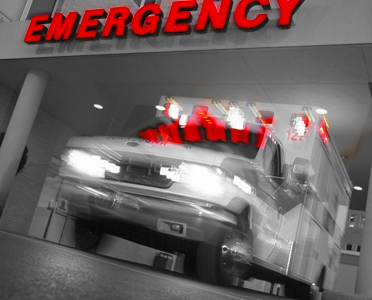Health staff speak out on violent ERs
 Hospital security guards want enhanced powers before more blood is spilled.
Hospital security guards want enhanced powers before more blood is spilled.
Security guards from a range of NSW hospitals have outlined broad concerns about staff numbers, job training and hospital safety ahead of a roundtable meeting with government officials this week.
NSW Heath Minister Jillian Skinner set up the roundtable on hospital violence in the wake of the near-fatal shooting of a police officer and a hospital security guard by a patient in January.
A survey of more than 600 people by the Health Services Union after the Nepean Hospital shooting revealed near-unanimous support for more training, safer emergency department protocols and a deal with NSW Police that would provide options other than dumping violent patients at hospital doors.
The HSU survey exposed a number of security issues in NSW hospitals, with guard complaining that they were not able to search patients' bags for weapons, while others said they wore uniforms that made people mistake them for taxi drivers and cleaners.
There was also widespread frustration at the lack of training and laws that prevent guards from dealing with violent patients.
“Police bringing persons for treatment in handcuffs and leaving that same person in an emergency department with security officers with no restraints ... I have always found [that] puzzling,” one respondent said.
“Training needs to focus more on negotiation skills rather than self defence. We need a much more professional standard of security officer in our hospitals. We don't need guards who are looking to pick fights or sit around on their smartphones all day,” another said.
Several guards called for a review of the design of emergency departments that see high numbers of ice presentations.
She also pledged to bring in new security staff for hospitals “with a demonstrated increased need”, as well as training sessions to help staff deal with ice-affected patients.
This week’s health security roundtable will be convened by NSW Health and features speakers from the HSU, NSW Nurses and Midwives Association, Australian Medical Association, Australian Salaried Medical Officers Federation, Unions NSW, local health district chief executives and NSW Health experts, but no one from NSW Police.







 Print
Print